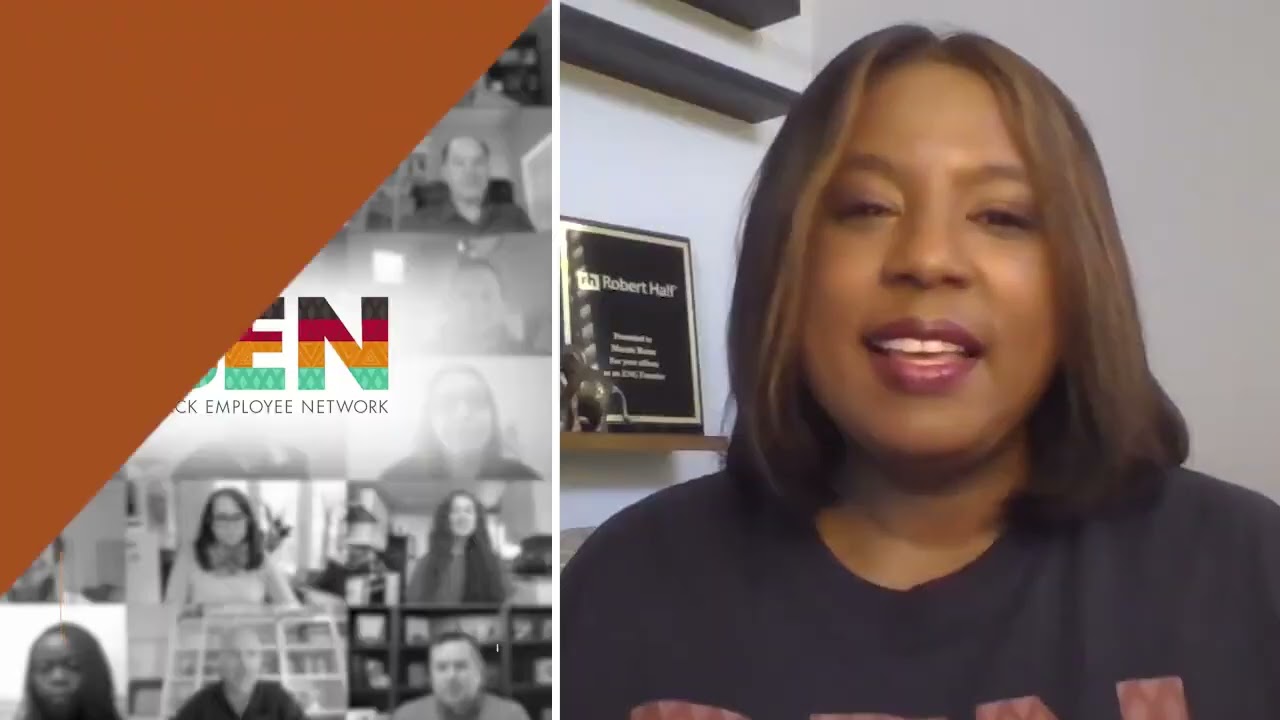Many employees look for fellowship and community in the workplace as well as in their private lives. This urge to connect not only explains the gravitational pull of the watercooler (or its Slack channel equivalents) but also a trend toward more structured forms of workplace community known as employee network groups (ENGs).
These networks, also called employee or business resource groups (ERGs/BRGs) or affinity groups, focus on historically underrepresented communities and bring together colleagues with shared interests for meetings and events. ENGs can be safe spaces where employees can find support, advocacy and allyship.
Why ENGs are good for business
Let’s review some ways ENGs can build connections among employees and help drive long-term change, no matter the size of the company:
ENGs support inclusion. For example, companies looking to promote women into leadership positions might benefit from an ENG like Robert Half’s GWEN, which champions and amplifies women’s perspectives. There’s also strength in numbers: ENGs can be powerful advocates for leadership development and equal opportunities. Finally, it’s much easier to be your true self at work if you can draw strength and inspiration from colleagues with shared identities or life experiences.
ENGs can educate your entire workforce. ENGs are safe spaces, but they’re not silos. Groups often organize meetings and events for all employees, helping to break down social and cultural barriers. By recognizing heritage months, like Asian Heritage Month in May or Pride Month in June, ENGs can lead the way with increasing representation and celebrating the accomplishments, contributions and histories of historically underrepresented communities.
ENGs bring global workforces together. Employees from traditionally underserved groups may have different experiences depending on the country and culture they work in. Especially at larger companies, digital technology can make it easier to bring people together as part of a global ENG, reducing the potential for employee isolation and providing a forum for dispersed workers to discuss any challenges they face.
ENGs help to identify future leaders. An ENG leader planning company-wide events must set out a vision and strategy, build the program, manage the budget and coordinate with parties ranging from caterers to guest speakers. These are complex, skill-building responsibilities that can boost the employee’s visibility across the organization, showcase how they are candidates for promotion and make them more effective in their regular duties.
ENGs raise morale and foster team spirit. Events like Pride Month tend to grab the headlines, but ENGs can also bring people together to participate in volunteering or community support activities. Such initiatives allow workers to hone their collaboration and problem-solving skills in cross-organizational teams and can boost your company’s reputation in the community.








